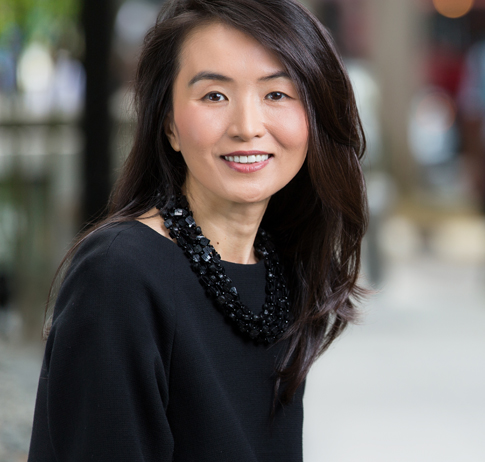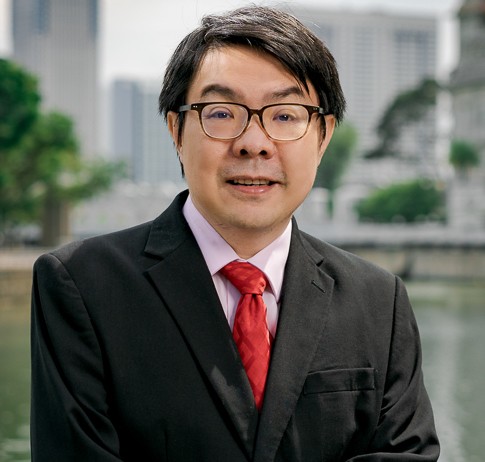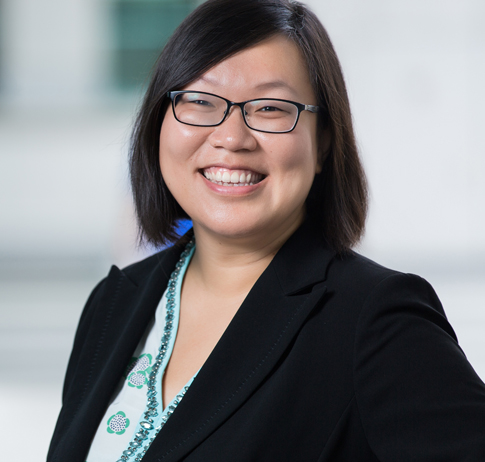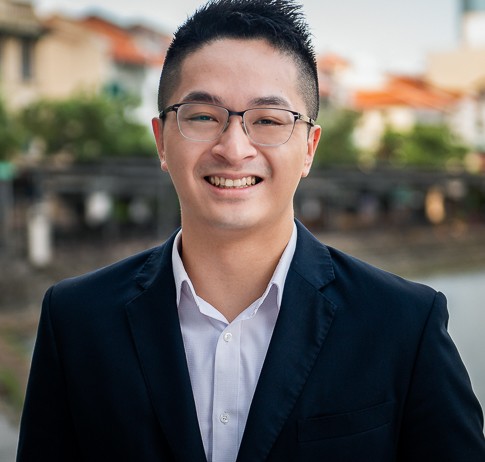Article
Getting Singapore Permanent Residency ('SPR') status under the New & Enhanced Global Investor Programme ('GIP') in Singapore
2 March 2023 | Applicable law: Singapore | 10 minute read
The GIP was launched in 2004 by the Economic Development Board ('EDB') with the objective of providing a faster track to SPR status for eligible global investors who intend to drive their businesses and investment growth from Singapore.
4 Categories of Eligible Investors
Over the years, the eligibility criteria for applicants have been expanded from Established Business Owners to include 3 other categories, namely: Next Generation Business Owners, Founders of Fast Growth Companies and Family Office Principals.
3 Investment Options
Despite the differences in background and expertise of the 4 categories of Eligible Investors, the investment conditions had previously remained the same for all of them.
They have the choice of investing at least S$2.5 million in one of 3 investment options:
- Option A: a new or expanding business in a qualifying industry in Singapore;
- Option B: an approved venture capital fund ('GIP Fund') that invests in Singapore-based companies, or
- Option C: a single-family office based in Singapore, that has at least S$200 million in assets under management ('AUM').[1]
Rationale for an updated GIP regime
The government has recently announced that between 2020 and 2022 alone, around 200 people have been granted SPR through the GIP and that the GIP investors who are approved as SPRs are less than 1% of the total number of SPRs approved every year.
In addition, the government also announced that the GIP has generated more than S$5.46 billion in total business expenditure via direct investments from 2011 to 2022, and created more than 24,000 jobs in Singapore.
In his parliamentary speech on 28 February 2023, the Minister for Trade and Industry Mr. Gan Kim Yong also announced that the GIP will soon be enhanced by the EDB to ensure that Singapore captures even more value from the capital, businesses, and networks that the investors bring. He indicated that the investment quantum will be raised, to ensure greater contributions from the investors, and to direct more funds and resources into the local Singapore ecosystem. In addition, the scope of the GIP-select funds will also be adjusted, in order to capture more value from a wider pool of investors.
Effective date of the changes
Earlier today, the EDB has announced the upcoming key changes to the GIP, which is slated to take effect for applications submitted from 15 March 2023. Any new applications and previously submitted but incomplete applications will only be processed under the existing regime if all supporting documents have been received without issues by the EDB before 15 March 2023.
More information, including a revised GIP Application Form, GIP Factsheet and Frequently Asked Questions, is expected to be released by the EDB on 15 March 2023.
Summary of key changes
There will be no changes to the eligibility criteria for the 4 categories of Eligible Investors as mentioned above.
There will still be three main Investment Options under the GIP. However, changes will be made to the investment conditions and the renewal criteria ('Renewal Criteria') for the Re-Entry Permit ('REP') for each of the 3 options. This is to better define the type of investment that would be meaningful to Singapore and also to the investors themselves as the targeted criteria are now calibrated and customised to each option to enable the intended business and investment to aim for success that is also aligned with a positive impact in Singapore.
The residency condition in the Renewal Criteria (i.e., the investor or all of his dependants, who obtained SPR status under the investor's GIP application, must have resided in Singapore for more than half of the time) ('Residency Condition') will remain unchanged.
We have summarised below the key changes made to each investment option.
Option A – Investment in a new business entity in Singapore or in the expansion of an existing Singapore business operation
The minimum investment quantum for Option A will be increased from S$2.5 million to S$10 million, inclusive of paid-up capital.
The list of qualifying industries for the new or expanded business will remain the same.
As for the Renewal Criteria, for investments into a new business entity in Singapore, the Option A company must employ at least 30 employees (of which at least half of them must be Singapore citizens) by the fifth year of the investor's SPR status.
For investments to expand an existing Singapore business operation, the Option A company must have an incremental increase of at least 10 employees by the fifth year of the investor's SPR status. The existing Singapore business operation should still meet the minimum total employee headcount of 30 employees (of which at least half of them must be Singapore citizens) condition by the fifth year of the investor's SPR status.
The existing annual total business expenditure requirement will be removed as under the revised conditions, greater emphasis is placed on the creation of high-quality jobs in Singapore, with the expectation that this will then naturally lead to an increase in the local business spending by the Option A companies.
Where the Option A investor is a part but significant owner of the intended business, previously the invested amounts are required to be adjusted proportionately. However, under the new regime, as long as the investor can demonstrate control over the invested business, then the minimum investment quantum will remain at S$10 million (inclusive of paid-up capital).
Option B – Investment in a GIP-select fund
The minimum investment quantum for Option B will be increased from S$2.5 million to S$25 million.
The Option B investor may choose to invest in a GIP-select fund which is fundraising during the period in which the investor is required to make the investment after obtaining the approval-in-principle of the PR application from EDB.
The EDB will select the GIP-select fund managers from amongst the top managers in the world (with presence in Singapore). We understand that the list of the selected funds will be announced by EDB in May 2023. It is currently anticipated that the GIP-select funds will comprise venture capital funds with some focus on investing in ventures and businesses in Singapore.
For renewal of SPR under Option B, the investor must have maintained his existing S$25 million investment in the GIP-select fund at the time of each renewal (i.e., the first renewal will be at the fifth year of his SPR status). The existing requirement for the Option B investor to separately still invest into a qualifying Singapore business, and the related employment and annual total business expenditure requirements, will all be removed.
This means that for investors who fulfil the Residency Condition and are willing to invest and maintain S$25 million in a GIP-select fund for the life of the fund, then they would have effectively secured their SPR status for at least 10 years. However, if they do not fulfil the Residency Condition, but maintained their S$25 million investment for the life of the fund, that would in effect secure a 8-year SPR status.
The messaging to the investors is therefore – the commitment of a significant sum of their risk capital to support Singapore's fund industry and indirectly also the start-up communities here is regarded as a sufficient, meaningful contribution to Singapore to support their SPR application.
Option C – Investment in a new or existing Singapore-based single-family office ('SFO')
Under Option C, there is no longer the requirement for S$2.5 million to be invested as share capital in the SFO company.
The Option C investor is instead required to set up a Singapore-based SFO, having AUM by the SFO of at least S$200 million, of which at least S$50 million must be invested into "local investments" within 12 months from the date of the final approval of his SPR status.
The definition of "local investments" will mirror that of the minimum "local investments" requirement under the section 13O and 13U tax exemption schemes (as relates to exempt single-family offices) administered by the Monetary Authority of Singapore ('MAS'). "Local investments" for this purpose therefore include:
- Equities, REITs or Business Trusts listed on Singapore-approved exchanges;
- Singapore Qualifying Debt Securities;
- Funds distributed by Singapore licensed/registered fund managers or financial institutions; and
- Private equity investments into non-listed Singapore-incorporated companies with operating businesses and with substantive presence in Singapore.[2]
The S$50 million which has been invested into local investments must be maintained until the fifth year of the investor's SPR status – although the regularity at which this is to be assessed remains to be clarified by the EDB. In the case of the minimum local investment requirement of 10% of the AUM or S$10 million, whichever is lower (for the section 13O and 13U tax exemption schemes), the assessment of whether the stated threshold has been maintained is determined based on monthly average figures at the end of each financial year. Hence, to achieve consistency between the GIP and the MAS fund tax exemption regime, perhaps a similar approach could be adopted or accepted by the EDB. To require the investors to rigorously monitor the S$50 million threshold at all times could be very demanding and it is believed that a more practical approach is likely to be adopted or accepted by the EDB, with the expectation of good faith on the part of the investor.
As for the Renewal Criteria, the Singapore-based SFO must employ at least 5 "family office professionals" (of which at least 3 of them must be Singapore citizens) by the fifth year of the investor's SPR status. A "family office professional" may include professionals in functions related to legal, tax, accounting, investments, and philanthropy.
The existing annual total business expenditure requirement will be removed as it is believed that a SFO that can meet the above professional headcount requirements should have a healthy local business spending in Singapore.
Concluding thoughts
The latest enhancements by the EDB are a culmination of various investor and industry feedback on the GIP, and a clear recognition that what constitutes "success" and a "positive impact" to Singapore and the investors investing in each Investment Option should be defined and measured differently.
The revised conditions are thoughtful and enable a more natural and organic growth of each Investment Option and hence should be welcomed by the investors who are keen to achieve success in, while contributing meaningfully to, Singapore.
Please do get in touch with your usual Withers contact if you would like to discuss this update. If you would like to receive a Mandarin version of this client update, please do not hesitate to contact us at familyoffice@withersworldwide.com.
[1] For Eligible Investors within the category of Family Office Principals, they can only invest through Option C by setting up the qualifying family office in Singapore.
[2] We note that for the section 13O and 13U tax exemption schemes (as relates to exempt single-family offices), the MAS has indicated that the AUM of section 13O and 13U fund vehicles may not include controlling stakes in related operating entities. Investors may wish to hold such shareholdings in a non-section 13O and 13U vehicle instead.




